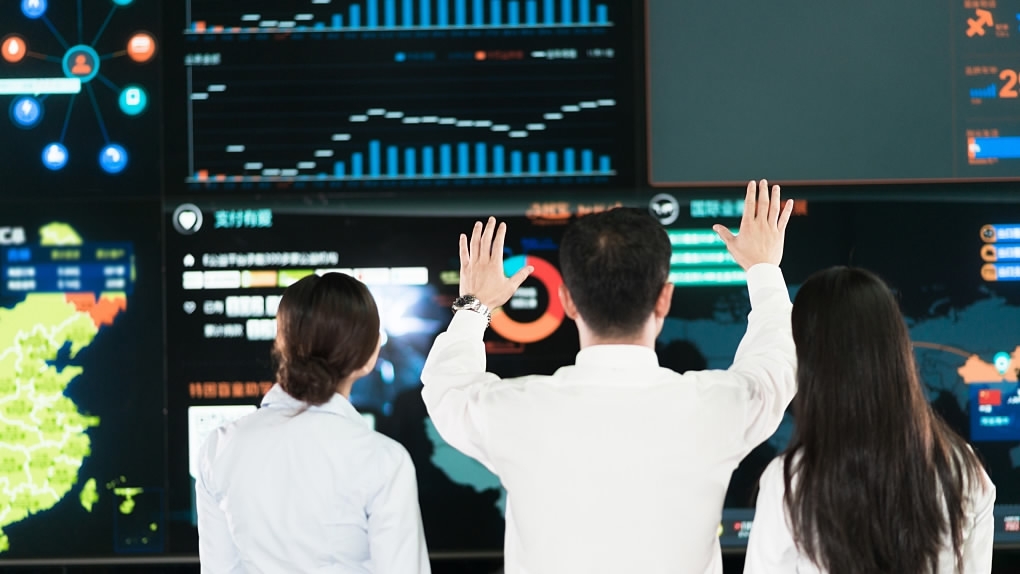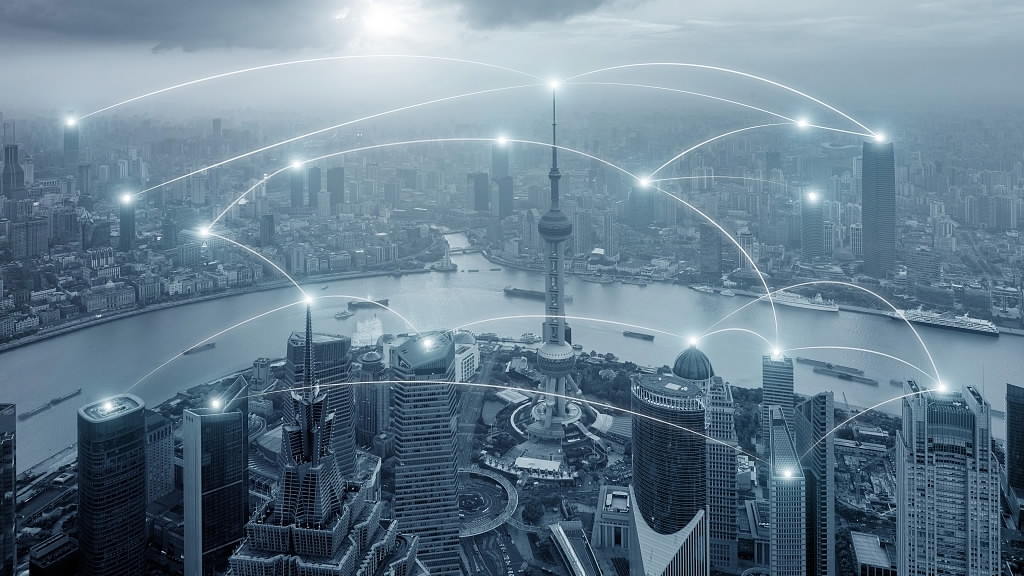

Throughout the last half-century, the North Atlantic partnership has been the driving force of globalization. But in the past year, the paths of America and Europe have diverged on everything from trade to climate change to preserving an open international system.
The current situation presents an opportunity for a different partnership: one between the EU and China. Are they willing to shoulder responsibility while the world’s foremost power has decided to “go on vacation”? And are they sharing a similar vision on global governance and can they overcome their own differences?
Dialogue with the World, a special co-production between CGTN and German broadcaster NDR, gathered experts from these two nations at the end of 2017, trying to find out how China and Germany are stepping to the forefront of the global stage in this new era.
Bottleneck on the DPRK issue?
The DPRK’s ongoing nuclear and missile programs are no doubt the flashpoint in Asia right now. People are asking: “Are we going to have a war on the doorstep of China?”

The DPRK test-fires another ballistic missile. /VCG Photo
“When you have (war) clouds, it does not mean you will have rain. So I think the war clouds are there, but I will be very surprised if there is a war,” said Professor Huang Jing, a Chinese scholar from the Bosch Academy.
“We still have a lot of options for a peaceful resolution, the problem of course is first and foremost all the countries, especially the United States and China should stand on the same page.”
Sebastian Heilmann, director of the Mercator Institute on China Studies suggested a new idea for the peaceful resolution of this issue.
“The German precision to try our new format of negotiation, maybe include additional partners that are not involved in the region, that not involved rather in the tense situation that have built up for recent years, maybe searching for a new format to conduct these talks,” he said.
And does South Korean president Moon Jae-in’s visit to China this week represent a silver lining for the situation in northeast Asia?
Charles Liu, a commentator and founder of Hao Capital, doesn’t think so.
“The discussion between China and South Korea is not going to solve the North Korea issue. The discussion between China and South Korea may restore some of the harsh relationship that existed over the last year and a half over the THAAD system.”

South Korean president Moon Jae-in on a state visit to China in December, 2017. /VCG Photo
“I think in terms of North Korea, they won’t be suicidal. In terms of the US and China, pushing China is not going to solve the problem, because China can’t allow five million refugees to come across the border. Over one million armed North Koreans, how about them come across the border?” Huang Jing pointed out.
“Ever since the 1990s when North Korea has the nuclear weapon systems, there’s one demand that did not change, that demand is one direct dialogue with Washington DC that will leads to normalization between the United States and North Korea. Of course the United States always says that ‘unless you give up your nuclear weapons’. ”
“The second fact is that if the United States do exactly the same what China has done to North Korea, things will be much easier. For example, China has just sent a special envoy to Pyongyang, but if the United States also send an envoy to Pyongyang, maybe it’s easier.”
Joreg Wuttke, president of the EU Chamber in China, said, “China has no interest in changing the status quo. That is a sort of rearrange the furniture in the backyard. The problem really is to tone down the rhetoric.”
China’s market economy status
It’s been a year since the expiry of Article 15 of the Protocol on China’s accession to the World Trade Organization, which allowed the EU to regard China as a Non-Market Economy and use a “surrogate country approach” in its anti-dumping investigations against China.
“I will not give China this status (market economy status) today. You have to hold on,” Wuttke, president of EU Chamber in China since 2014, said.
“It’s 98 percent of trade which goes absolutely without any issues the dumping cases, the 2 percent are challenging, so the 2 percent is labeled under the market economy status. Europe has made the move, they deleted the list made of proposals for the parliament and there’s a movement going on in order to change the dumping rules. But China seems to really have the ‘face’ issue—‘give me the market economy status’. And next month you will see a major report coming from Brussels that makes crystal clear that China is not a market economy, and the US came up with this paper last month. I guess the real challenge for China is to become a market economy for its own benefit.”

Is it or isn't it? The thorny issue of China's market economy status. /VCG Photo
Professor Huang Jing argued: “It’s ridiculous to say that China is not a market economy. China is the number one trading nation on earth, how could you trade with a country who is not market economy? Another issue I want to talk about is ‘what is China’s rise?’ China’s rise is eventually guided or driven by the prevalence of market economy ever since 1978, Deng Xiaoping opened reform. If we look forward not backward, I think not giving China’s market economy status is purely politically-driven move, and which cannot be scrutinized by any reasons.”
“I don’t think China should become an even bigger trading power. After the 19th Party Congress, China is looking for more equality than quantity. Going back to the issue of market economy, who defines what a market economy is? The two biggest companies in China, with market capitalization leading the top ten in the world, Tencent and Alibaba, are they market economy companies? What we see in China today depends on how you want to define it. It is no question that it is used as political pressure point with china to argue for other things as bargaining chip,” Charles Liu argued.
“The European perspective is very different. The problem is bigger because China clearly has a state-guided economy, different from what the WTO had in mind in 1992 when it was updated last time. The problem is we have work on them together that the multilateral trade regime is not built to include the Chinese economy. So many of the rules of the game are very outdated, we really need new multilateral trade rules, and we have to build it together,” Heilmann explained.
China expects more hi-tech transfer from EU
Professor Huang Jing said, “There’s no hi-tech deal between China and Western countries, especially the United States, simply because there is a law in both the US and the EU to ban the export hi-tech to China, which is politically-driven, it’s discriminated. That’s exactly the challenge we need to overcome.”

China expects more hi-tech transfer from the EU. /VCG Photo
Is China becoming less attractive to Europeans?
“The appeal of China is its economic growth model, you find jobs and you find total excitement in the jobs, it’s never a boring day, at the same time, Chinese people are wonderful friends, it’s warm-hearted, and particularly for children,” Wuttke said.
“Seventy percent of Europeans say that they are less welcome in China, and 80 percent of Americans, that has to do with legislation, with the kind of visa process. There are less foreigners now than years ago, in my case, it usually cost 3 now 15 days to work on my passport. So this administrative inconvenience, at the same time the pollution of course, it’s very hard to argue that you have to live in the environment that has a 1000 PM2.5. It takes a lot of communication between our nations and it’s a sad story,” he added.
Charles Liu however disagreed. “Ten years ago, 27 percent of Chinese students who go abroad actually come back, now it’s 70 percent, because the opportunities are here. Now for young people, for example, you go to the US, what kind of opportunities are there? But for example, I would say, you go to Shenzhen, you have the chance to start you own business, you can be at the leading edge of many technologies. Shenzhen is a different environment, Hangzhou is a nice life, Chengdu is even a nicer life, if you don’t want to work very hard, it’s a very nice place to sit by the lake and play mahjong. But young people are coming today to China because that’s where the opportunities are.”
Dialogue with Yang Rui is a 30-minute current affairs talk show on CGTN. It airs daily at 7.30 p.m. BJT (1130GMT), with rebroadcasts at 3.30 a.m. (1930GMT) and 11.30 a.m. (0330GMT).

Copyright © 2018 CGTN. Beijing ICP prepared NO.16065310-3
Copyright © 2018 CGTN. Beijing ICP prepared NO.16065310-3